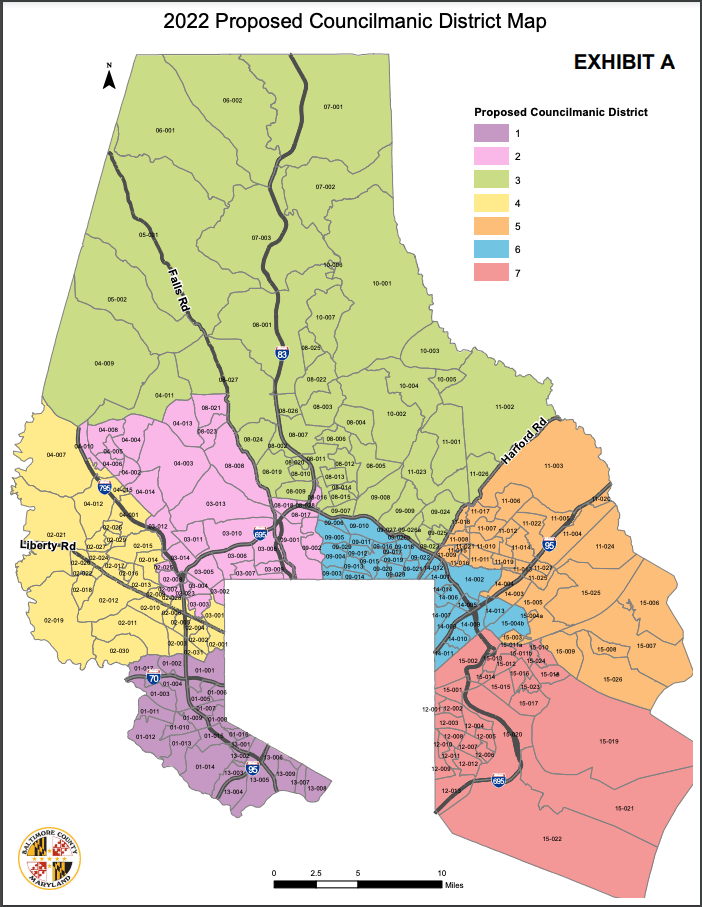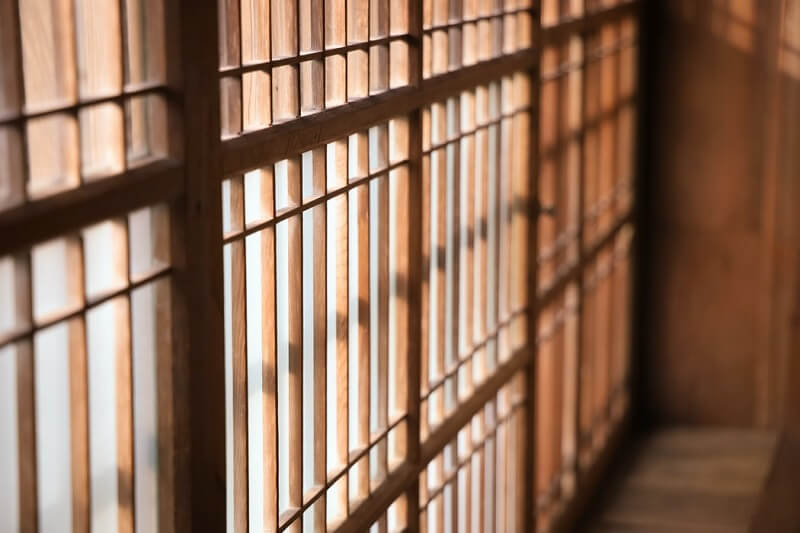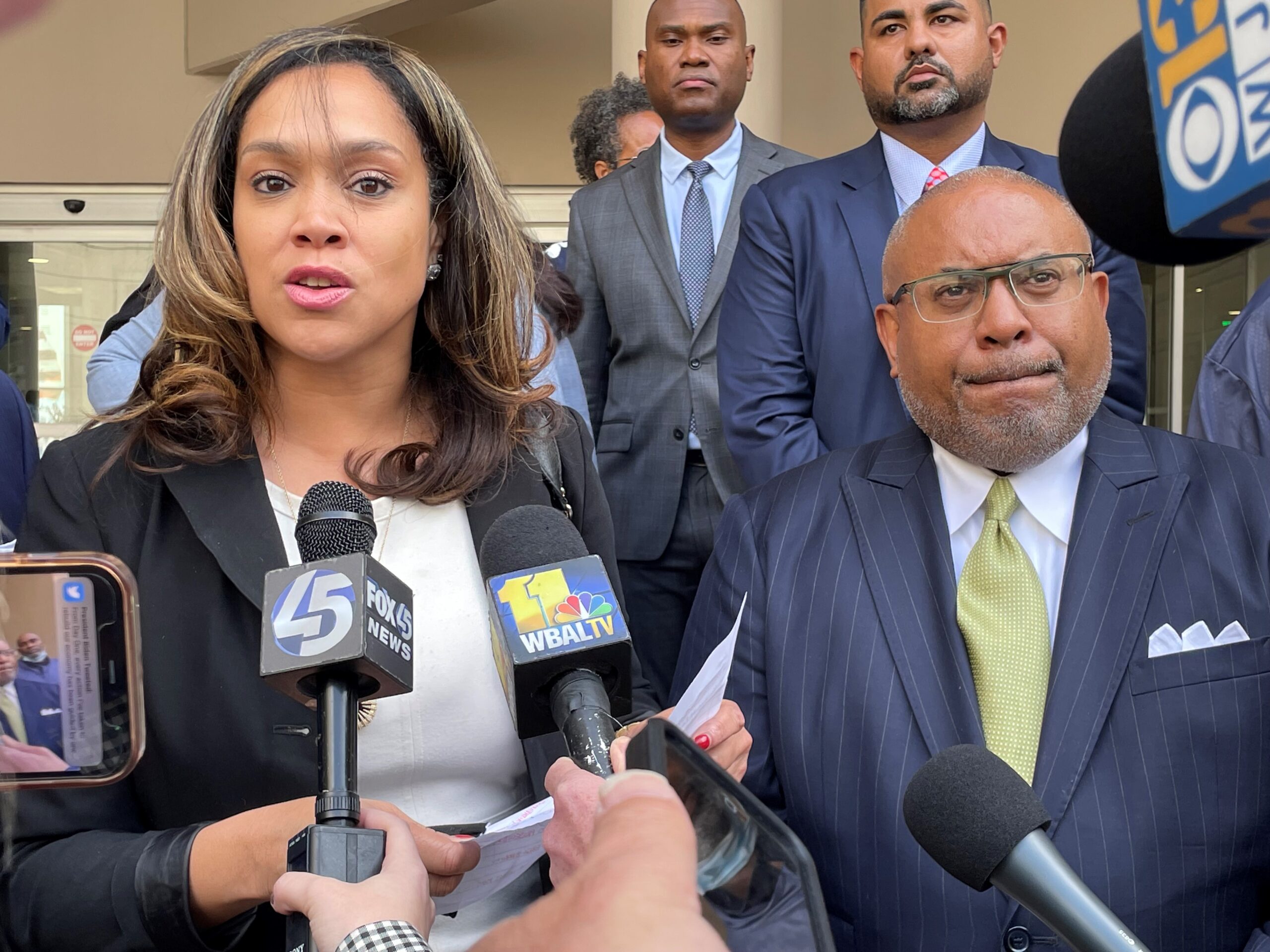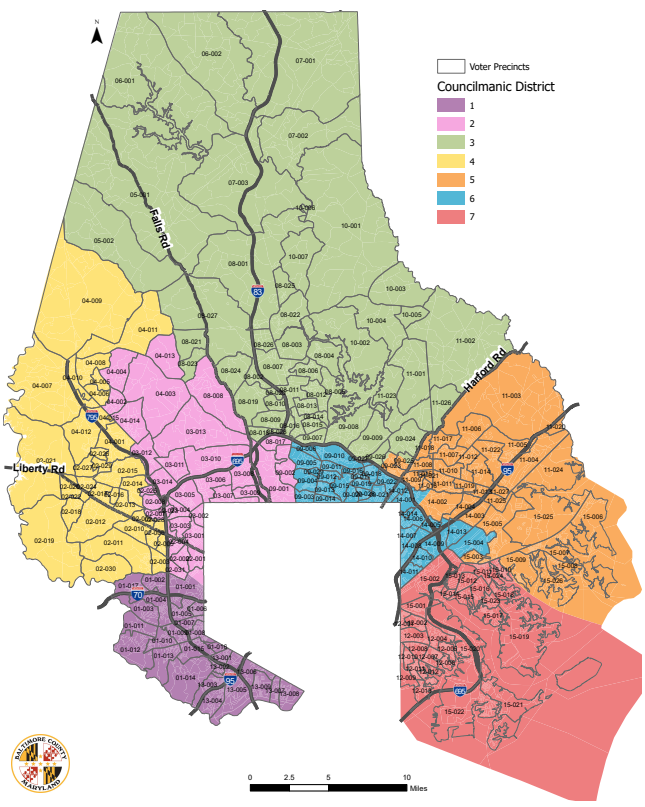Baltimore Co. Redistricting Lawsuit: Ruling on Injunction Could Come Soon

A federal judge said she will rule soon on a request to block the Baltimore County Council’s redistricting plan.
Civil rights groups oppose the council’s plan, which keeps just one majority Black Baltimore County Council district.
U.S. District Court Judge Lydia Kay Griggsby heard arguments Tuesday on the plaintiffs’ request for a preliminary injunction to stop the new county council district boundaries, approved by the current council, from being implemented.
Five of seven districts in the plan, approved by the county council in December, are majority white and another has a 46.17% white plurality. Similar to current maps, one district would be majority Black at 72.59%, according to data released by the Baltimore County Council. Roughly 30% of county residents are Black, according to U.S. Census data, and nearly half are people of color.
In December, the Baltimore County NAACP, Common Cause Maryland, the League of Women Voters of Baltimore County, and several Black voters in the county filed a lawsuit against the council’s redistricting plan.
The plaintiffs argue that the map violates the federal Voting Rights Act, which bans cracking, or “fragmenting the minority voters among several districts where a bloc-voting majority can routinely outvote them,” according to the U.S. Department of Justice, or by “packing them into one or a small number of districts to minimize their influence.”
At the hearing, Andrew D. Freeman — an attorney with the law firm Brown, Goldstein and Levy who is representing the plaintiffs — asked Griggsby to block the plan and give the county council ten days to come up with a new one that includes a second majority Black district.
Freeman said that, if county council members can’t decide on a new redistricting plan during that time, one of the plaintiffs’ map proposals should be enacted. He pointed to what he described as a “strong pattern of racially polarized voting.”
A single majority Black district was drawn in 2001 after a push from civil rights activists. Residents of that district have elected a Black council member in every election since it was created, while majority white districts have elected white council members. Baltimore County Council Chair Julian E. Jones Jr. (D) is the only Black council member.
Ava E. Lias-Booker — an attorney with the law firm McGuireWoods who is representing Baltimore County — argued that “Black-preferred” candidates like County Councilmember Thomas E. Quirk (D), who is white, have won in districts that aren’t majority Black.
Arguing that neither the current nor the recent council-approved map dilutes Black votes, she also pointed to the election of Cheryl Pasteur, who is Black, to the county’s school board in District 2 in 2018.
Pasteur, a longtime educator who recently resigned from the school board to run for state delegate, asserted in a previous filing supporting the lawsuit that her opponent at the time didn’t have experience in education and raised no money during the campaign.
“There was essentially no opposition,” Freeman said Tuesday.
Lias-Booker argued that the court shouldn’t enjoin the map so close to an upcoming election, pointing to the Purcell principle, or the concept that federal courts shouldn’t change state election rules just before an election. That principle was used recently in a 5-4 Supreme Court decision in Merrill v. Milligan that put a hold on a lower court’s ruling that Alabama’s new congressional map likely violates the Voting Rights Act and dilutes Black votes, SCOTUSblog reported.
Freeman pointed to the Maryland Court of Appeals pushing out the candidate filing deadline from Feb. 22 to March 22, to contend that there’s time for challenges to the map while still allowing election workers to prepare for the June 28 primary.
“The Black voters of Baltimore County should not have to wait four years, let alone ten years, to have that violation of their rights corrected,” Freeman said.
Both Lias-Booker and Freeman agreed that a decision from Griggsby wasn’t necessary Tuesday, given the new candidate filing deadlines.
Griggsby said that she would try to make a decision on the plaintiffs’ request for a preliminary injunction in the next few days.




 Creative Commons Attribution
Creative Commons Attribution